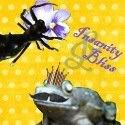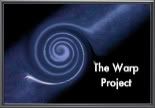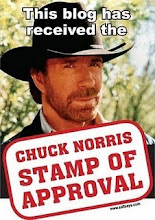I have accepted by now that I love people as hard as I possibly can. In my life I've faced the loss of many loved ones ranging from close family members, to pivotal high school friends, to my closest friends. Some of these deaths have occurred through suicide, and a number have occurred through horrible tragedies. What has come out of these experiences for me is the reality of loss--the realization that our relationships with others are utterly irreplaceable. When someone we care about leaves our lives, we will never again replace the kind of engagement we were able to share with that one person. That is not to say we will be unable to love others. It is to say that the understanding we share with one other person is simply unlike that we share with someone else. When someone touches our lives more closely that contact will not be substituted by contact with someone else. The deaths that I have experienced have left me changed; changed because of the import of the relationship shared with the person that is now gone. I have become something more, something different because of what they gave to me, and what we shared. The imprint of their contact with me has marked and changed me as a person.
Failure is like this. When we seek to take the risk of pursuing something we genuinely care about, failing to fulfill our goal means being marked in a way that is impactful, that changes us as a person. When we commit to a goal, not reaching it shows to us our limits, and forces us to feel the pain of our lost dream. That is, we are forced to imagine ourselves in a new way. We no longer are the person that was seeking that goal. We have become limited in relation to that pursuit, and now understand ourselves differently. This discovery of difference can be intensely difficult.
Having faced the pain of loss through death of loved ones, I've become a person willing to risk hard and fully to love others. Willing to risk not because of wanting the pain of loss I've lived before. But instead because I believe too strongly that it is passionate care itself that is the only thing we have as people that can overcome the brutality of losing each other, that can overcome our own mortality. It is only in knowing that we loved as strongly and genuinely as we were able that the any portion of that bitterness of loss can be assuaged. It is perhaps not a portion large enough, but the gift of knowing someone so dearly is, I believe, the genuine gift of human life. If any of this is true, and we are committed, too, to not wasting our lives, then we are committed too to embracing this sort of passionate care for each other. It's a willingness that some, I'm sure, think is crazy and too risky of me.
I'll admit, opening myself up in such a way has exposed me to some of the most intense pains in my life--when the love ends, or the love remains but the relationship ends (be it friendship or otherwise)--thus the craziness some might think I'm too willing to live. Such pain I can only describe as having lost my heart, because in opening to love truly, I've already given my heart away. The pain, then, comes from having to live, for a time, if the relationship ends, without my own heart, struggling to continue as my heart slowly returns to me. In such pain I know that my heart will return, and also that I will be a different person when it does, and also that I will not have lost my own passionate commitment to love in this crazy fashion. I simply may have changed with whom I'm willing to love. I know too though that the quote I posted yesterday is true--the greatest lesson I can live is in loving others, and in learning to be loved by them as well.
From all of this I believe it is not the risk of our own loving of others itself that exposes us to the worst failure, but instead the risk of loving such that we can be loved in return. That is, the risk of letting someone else love us means taking the risk of letting someone else in. This is the ultimate risk because of how their love for us means they will leave us utterly changed, we will be a different person as a result of opening to another in such a way. And we cannot always predict how that change will occur, what it will look like or feel like, what it will bring with or to us.
It is in love, I think, that we discover how little control of our lives we actually have. Not that we should not do the work of establishing healthy, stable lives for ourselves, just that we come to realize that we are small in the face of the possibilities of our lives, and we have limited control over what we are actually able to do.
It is easy to fear that when someone loves us in the way we most deeply want, that that love might go away, or that we may not love adequately in return, and so cause the love to go away. I believe all we can do is to recognize when we've discovered a love this powerful, and then to face our own fears that arise because of that love (sometimes its fears arising that is the exact thing that reveals how important the love itself is), admit to having those fears, and then make the point to choose consciously for ourselves, for our hearts, in the face of our fears. That is, to choose not out of our fears, but instead in acknowledgment of them for the sake of something far bigger than them--ourselves.
A dear friend of mine repeats the following affirmation to herself on a daily basis:
Divine love is doing its perfect work in this situation.
I appreciate this statement. I appreciate it because of how it reminds us we are only human. Being only human means there is so much we cannot control. That there is something greater than us--simply, life--that we are beholden to. And that even if we don't believe in any sort of god, to be genuinely engaged in the possibilities of our own beautiful lives, we must give ourselves over in the face of our own fear of failure, at the risk of our own heart break, to love strongly with commitment, knowing that doing so means opening ourselves to something that is greater than ourselves and yet that we are making possible--a life that is fully lived.













i like this. i have plenty to say about it, and i'd like to talk about it "philosophically," both immanently and of its implications.
ReplyDeletebut i'm going to bed instead. but, as you may have heard before, to put it better than i ever could, here's monsieur lacan:
"love is giving something one doesn't have"
(followed by zizek, who i don't like to quote, but this one is good)
"...to someone who doesn't want it."